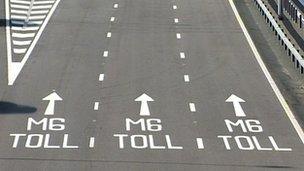Why do big infrastructure projects take so long?
- Published

1957: A man inspects the inscription on the pilot tunnel of the 1880 Channel Tunnel project
It was in 1802 that a tunnel under the channel between France and Britain was first suggested to Napoleon.
It took a mere 192 years before the idea became a reality.
A decade ago, under Labour, a government white paper declared a new runway at Heathrow would - in principle - be supported.
Today, the government and opposition alike wait on another report on the subject. Its conclusions are not due until after the election in 2015.
Politicians like to commit to long-term infrastructure plans.
Sense of purpose
It proves their horizons stretch beyond the next election, and allows them to announce big spending ideas with impressive numbers.
And it demonstrates a sense of purpose.
Talking about energy policy in general, and replacing nuclear power stations in particular, Tony Blair declared in 2006: "If we don't take these long-term decisions now we will be committing a serious dereliction of our duty to the future of this country."
Planning consent for a new nuclear plant in Somerset was granted only this year. It could take another decade for it to become operational.
Leaders fret about this sort of thing. Tony Blair worried that China was set to build 70 international airports in ten years, while Britain prevaricated on a single runway.

The M6 Toll opened in 2003
But he wrote that in his autobiography, long after he left Downing Street. It is hardly surprising politicians tread carefully in office.
Huge building projects that could benefit the country are often unwelcome among the communities that must live with the noise and disruption they will create.
Constituency MPs, like some of those objecting to the HS2 rail plans, are well aware of this.
The prospect of going into an election backing ideas that will prove unpopular in marginal constituencies is unappealing for any political strategist.
Legal challenges
And while today's Treasury ministers can try to give industry and voters confidence by making plans that stretch to 2020, they all know that a new government could change everything.
Are delays all down to politicians?
No. Successful campaigns, legal challenges and the simple fact it often falls to the private sector to do the investing and building all mean there is plenty to frustrate them.
Do they always fail? No, again. The M6 Toll - Britain's first pay-as-you-go stretch of motorway - opened under Labour. Work on the vast Crossrail project is now well underway beneath London.
Looking on the bright side, even the Channel Tunnel got built in the end.
But it took a while.